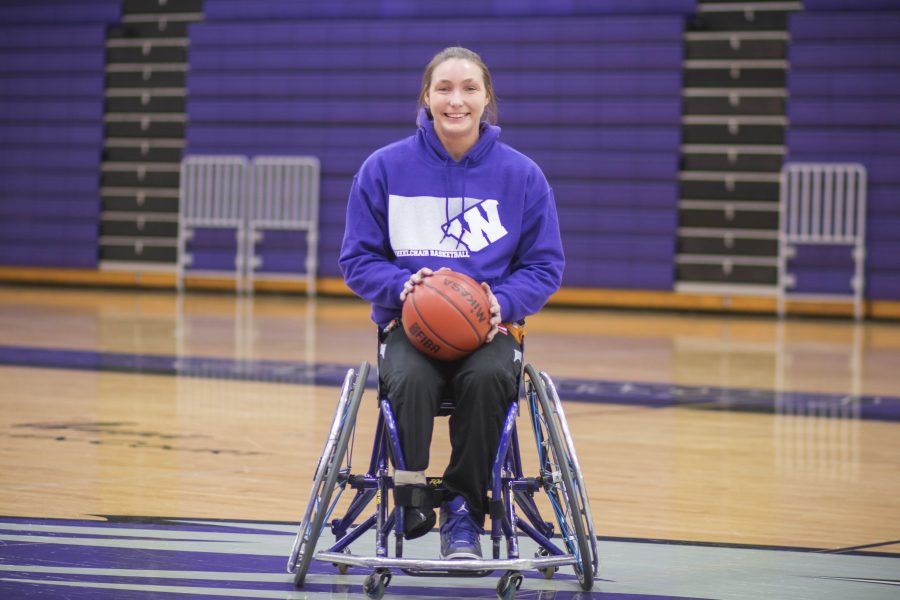Dec. 10, 2014 By Connor Moore
Mariska Beijer can often be seen donning a big and generous smile upon spotting her around campus. According to the women’s wheelchair basketball head coach Dan Price, don’t let all that fool you when it comes to her presence on the court.
“‘Mars’ is a beast,” Price said. “She’s always hustling and has such a high motor. Whereas off the court, she’s gentle, soft-spoken and would do anything to help anyone.”
Beijer, who hails from The Netherlands and plays for her home country’s national team, explained what it was like growing up and playing basketball back overseas.
“I think growing up is quite similar,” she said. “The culture is pretty similar, it’s just more westernized here. The main difference is that there are no school teams. I used to play in primary school, high school and the university, but all on a club team.”
Beijer would only play against adults, often being the only girl.
“There would be these big, buff guys, and I was the tiny little girl in between them,” Beijer said, smiling. “But it made me who I am.”
Beijer acknowledged that several things stood out to her when she first arrived here at UW-Whitewater.
“When I first came here, it was in the middle of a home tournament,” she said. “I was just amazed at how many people came out to watch our games. Back home in The Netherlands, we had like 10 people watching, and they were all family members.”
Beijer was also surprised by how she could not combine full-time practices with full-time studies and being “awesome at both.”
“This semester, I’m taking 19 credits, but I can still practice 4-5 hours a day, and I have a B+ average in every class,” Beijer said. “It’s rough, but it’s just time management and good planning.”
On the court, Price noticed firsthand the transition Beijer had to undergo.
“When she first came over, she had to learn our system,” Price said. “It was new terminology, so she had to adjust.”
One aspect of her game that really fit in with the team’s system was her power and overall physical presence, which Price said he noticed immediately.
“We would have deadly shooters, but she made defenses collapse with her power,” Price said.
Beijer, who was a part of last year’s National Championship campaign, felt last year’s team was very routine.
“We had four Paralympian’s and a really deep bench, so we could sub in-and-out without any problems,” Beijer said. “It was pretty cool, since we were undefeated the entire season. We played a lot of men’s teams, too, and did really well.”
“Halfway through the season, we were like, ‘Yeah, we got this. As long as we don’t get in our own heads and also take into account what every opponent can do.’”
Compared to when she first came over, Beijer said she’s much more comfortable as a teammate and in her game.
“Now I know everyone on the program real well,” she said. “I know what I can and can’t do.”
In regards to her play, Beijer said her position is different.
“Before, as soon as I got the ball, I sprinted down the court and made the basket,” Beijer said. “Now I actually have to set up the game and steer the other people, too. Coach Price gives out directions on the side, and I have to take into account everything. So it’s nice now that I actually know everybody so deep so I know how to steer them.”
Beijer admitted it has taken her time to get used to not being a center and having to be more of a point guard, but really likes the change.
“It makes me more of a complete player,” Beijer said.
For this season, Beijer knows there could be potential challenges.
“We lost four starters from last year, and everyone has to adjust to their new roles, myself included,” Beijer said. “I think that when everyone gets used to their new roles, we’ll be more consistent.”
So is there anything Beijer feels she should improve upon?
“Just being more self-confident with my outside shot dribbling with my left hand,” Beijer said. “I know I can do it, but sometimes in games I always want to dribble with my right. I always get yelled about it, so I’m working on it.”


